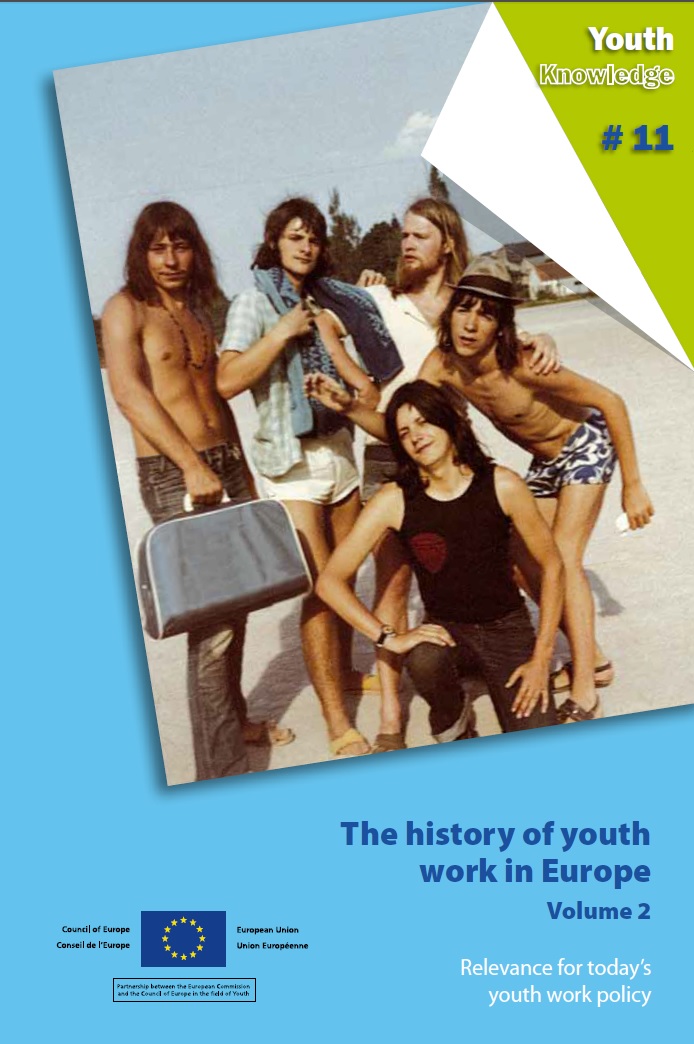The history of youth work in Europe - Volume 2. Relevance for today's youth work policy

Edited by Filip Coussée, Griet Verschelden, Tineke Van de Walle, Marta Mędlińska and Howard Williamson
Council of Europe, September 2010. ISBN 978-92-871-6824-5
Youth work starts where young people are. It is perhaps this general principle that seems to create a certain 'myopic view' in youth work practice, policy and research. We tend to concentrate on the questions of today and take them as a starting point for our future plans. This sometimes makes youth work an uncertain and fragile practice. The lack of historical consciousness makes youth work vulnerable to instrumentalisation, whether by policymakers or even by young people themselves, claiming youth work should fulfil the needs they define to be urgent and relevant.
Youth work is a contingent practice and history will not reveal to us its one and only real identity. Knowing where we come from, however, is an important step in establishing a confident, though not arrogant, identity. Youth work is a social and pedagogical practice that must be adapted to very diverse historical, geographic and social contexts, but there are still some underlying, basic assumptions that have structured practices and policies to date and continue to do so. In this light, a cross-cultural and transnational perspective can be most enlightening.
This second volume of The history of youth work in Europe, presents the youth work histories of some very different countries: Belgium and its three communities, the Netherlands, Ireland, Wales and Hungary. The reader is also introduced to the history of the relatively young European youth policies, and is even given a glimpse beyond European borders with a history of youth work in South Africa.

Edited by Griet Verschelden, Filip Coussée, Tineke Van de Walle and Howard Williamson.
Council of Europe, 2009 978-92-871-6608-1
Youth work is a polyvalent and multi-faceted practice. It takes place in a wide range of settings, varies from unstructured activities to fairly structured programmes, reaches a diverse array of young people, touches upon many different themes and cuts across several other disciplines and practices. This versatility is one of the strengths of youth work, but at the same time it may lead to fragmentation and product vagueness.
In this book we take a historical perspective that aims to identify the close links between youth work developments and broader social, cultural and political developments. What are the beliefs and concepts that underpin youth work? How do they relate to the recurrent youth work paradox, that youth work produces active and democratic citizens but at the same time seems ineffective for young people who are excluded from active citizenship? Tracing back the roots of youth work and identifying different evolutions within and between countries help to initiate a fundamental discussion on modern-day youth work identity and to cope in a constructive way with the recurrent paradoxes of youth work.
The different authors highlight the youth work policies in Belgium (Flanders), Germany, England, Poland, Malta, France and Finland.
Download The history of youth work in Europe and its relevance for youth policy today >>
The history of youth work in Europe and its relevance for youth policy today is also available in Bulgarian
